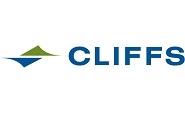Prices

October 22, 2017
Cleveland Cliffs: Whack-A-Mole Interrupted
Written by Sandy Williams
Cleveland Cliffs posted net income of $53 million in the third quarter that included an $89 million loss after paying down debt and a $32 million gain from discontinued operations. Debt was reduced to $1.7 billion compared to $2.2 billion in Q3 2016.
“We are very pleased with our accomplishments so far this year, in which we became a much more profitable company, substantially improved our debt profile and now pay a lot less in interest expense. With the third quarter numbers in the books, we have already outperformed in three quarters of 2017 the results of the entire 2016,” said Chairman, President and CEO Lourenco Goncalves.
During the quarter, Cliffs acquired the remaining 15 percent of the Tilden Mine from U.S. Steel, giving it 100 percent ownership. The acquisition will boost potential production for 2018 to 20 million long tons. The newly acquired production capacity gives Cliffs the flexibility to meet not only the needs of customers, but also supply the HBI facility that will be built in Ohio, said Goncalves. The HBI facility is scheduled for completion in mid-2020 following the start-up of the upgraded Northshore DRI facility in 2019.
Cliffs is currently in discussions with potential partners for the HBI facility and has received substantial interest from potential customers. The company is open to multiple investors and a variety of possible agreements, Goncalves said.
During the earnings call, Goncalves noted that full-year sales and production for 2017 will be reduced by 500,000 tons each to 18.5 million tons due to an unexpected reduction in pellet nomination by a large customer. The reduction will be partly offset by increased export sales in the fourth quarter, but the logistics disadvantage in selling pellets to the seaborne market will negatively affect the quarter.
Goncalves expressed his dislike of giving away logistic advantage by exporting to the seaborne market. “We export some pellets to clients that are long-term, well established clients in Asia, but that’s pretty much it,” he said. “I’m not going to go full blown exporting pellets because exporting pellets from the Great Lakes is fools’ business.”
“This client nomination reduction came in light of a domestic steel environment where imports have climbed back up, vastly enabled by the lack of decisive action largely announced but never implemented by the Trump White House,” said Goncalves. Cliffs expects nominations to return to normal and does not foresee a residual impact in 2018. Strong business conditions are expected for the iron and steel industry in 2018.
Expounding his views on China, Goncalves said China’s environmental restrictions have been successful in reducing their steel output, and the nation is controlling their currency responsibly. As a result it, has dramatically reduced steel exports. The change to higher quality iron ore from cheaper pollution-creating fines will eliminate one of the advantages Chinese steel had in cost compared to U.S. producers, said Goncalves. “With domestic steel consumption in China pretty much unabated and production restrictions in place, it is not reasonable to expect that the Chinese will continue to be able to flood the international market with cheap steel.”
The whack-a-mole scenario caused by Chinese exports has been interrupted, said Goncalves. The concern should now be where unfair exports will pop up next, and the country to watch is North Korea. “North Korea absolutely needs strong currency, and they are not going to export saying this coil was made in North Korea,” said Goncalves.
“So if you are a steel buyer in the United States, if you are a service center in the United States and you still have access to their cheap steel, you have got to know one thing, that coil could have been produced in North Korea. And if one day you have two guys in a dark suit and a black tie show up at your door saying they are from the FBI, you have got to believe it, because they don’t like you buying steel from North Korea.”
Goncalves reiterated previous sentiment regarding service centers who import cheap foreign steel. “I believe that domestic buyers, particularly service centers in the United States, are among the most relevant culprits of the United States of America being flooded with unfairly traded steel. It takes two to dance. It’s not just the perpetrator at the other side of the world, it’s also the perpetrator right here inside, disguising as a good guy, disguising as a good client. But these guys, over time, will be all exposed.”







